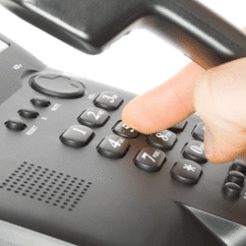Telephone fundraising has been in the spotlight recently. Emily Corfe reflects on when she worked as a fundraiser and says it's time to recognise how difficult the job really is.
Telephone fundraising came under media attack again last week. It was high time, considering it was at least a few weeks since the last scathing attack.
A Sun reporter dished the dirt on Pell & Bales, revealing calls made to “elderly”, “distressed” and “confused” people that reminded her of “poor Olive”. The Mail on Sunday revealed “callous” tactics at the fundraising agency Listen.
I had my own stint as a telephone fundraiser a few years back. In the weeks between leaving university and moving to a new city, I spent some sunny weeks shut up in the call centre of a leading agency, persuading kind-hearted souls to increase their direct debit payments to charities.
I enjoyed much of what I did. It's a worthwhile thing to be fundraising for charity. It's also a difficult and demanding job which requires some real skill. I have enormous sympathy with those who do it full time.
But at the same time, I recognise some of what was reported.
First, it was a treadmill, just as the newspaper exposés have described. One call would end and the next begin – often to elderly people, who sometimes seemed annoyed at receiving another charity call and other times happy for a friendly voice to talk to.
We worked from scripts – with varying responses for different answers to questions asked. Often the donor had a passion for the charity and we’d go off-grid. I got to hear snippets of life stories – complete with tragedies, financial woes and triumphs - and the reasons why they supported the charity.
Sometimes donors thought it was a courtesy call to thank them for their support and I’d feel a tinge of guilt at pulling the call round into the sell - the metamorphosis of personal tragedy into profit for the good of the world.
Elusive feel-good factor
My summer as a telephone fundraiser may have been a good few years ago, and my memory of details sketchy – but I did feel a sense of unease that I was pulling profit from the vulnerable.
All day long, I persuaded people to increase their direct debits. Outside of work I was busy telling friends and family to close them down – and quickly before they had the misfortune of me on the other end of the line.
Ten years on, I’ve learned a lot more about the charity sector and I’m not quite as jaded. I’ve gained an insight into fundraising as an agency worker, charity worker and journalist.
My next job, writing press releases for a small homelessness charity, was a different kettle of fish. Working for a charity gives you the illusive feel-good factor that’s all too apparently missing for the telephone fundraiser. You get to delve into the cause and gain a passion for the charity’s beneficiaries - the fun part of the sector that the hardy telephone fundraiser misses out on.
To the outside world, telephone fundraising is a scandalous profession. But charity work is noble indeed.
Telephone fundraisers get stick for their work. Charity workers don’t.
And yet telephone fundraising provides a significant income for British charities. Latest figures are thought to stand somewhere between £100m and £1bn annually with the figure growing year on year.
I don’t doubt that bad fundraising practice spells bad news for the charity sector. No one should be “flogging fundraising like a PPI scheme” as the Guardian recently said.
Donors who go out of their way to help a cause in spite of financial or personal woes deserve gratitude and respect. And that’s not always forthcoming from call centre staff.
But there’s no denying that money raised by telephone fundraisers helps cure cancer, relieve suffering from natural disasters, save sick children and abused animals, provide shelter for the hard-up and more.
#nuisancecalls
Last year’s Channel 4 Dispatches programme about telephone fundraising malpractice brought the sector’s fundraising twitterati out in force.
War Child tweeted its thanks to “all wonderful supporters who take #nuisancecalls so that we can provide a lifetime of hope for children in war”.
“Using a partner to make so-called nuisance calls helps us to keep costs down and ensure more of your money goes to children who need it,” it said.
Another viewer tweeted: “Charities have to solicit funds. Unsolicited income is a drop in the ocean. I'll say it again: apathy doesn't change the world #dispatches.”
While one pointed out the irony of the charity versus fundraising scenario: “It's illogical to admire charities but hate fundraisers. Come on #dispatches, spend your budget exposing genuine problems. #proudfundraiser.”
Now more than ever, telephone fundraising is a thankless job that lacks the feel-good factor.
But maybe it’s about time we cut them some slack.









